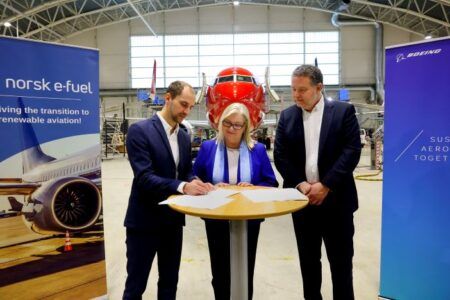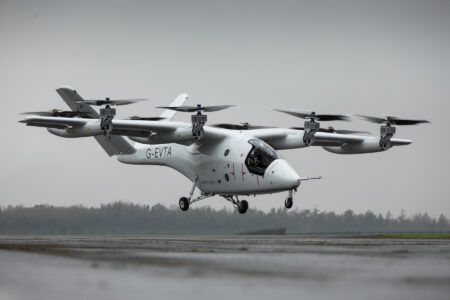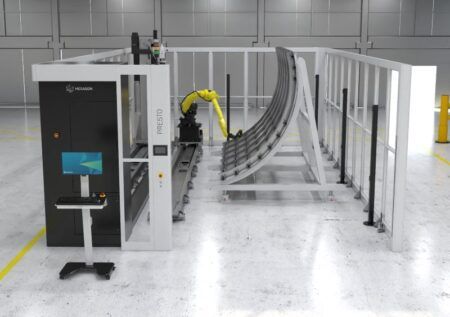Airlines could significantly reduce their fuel bills and carbon footprint thanks to a new device being developed with the University of the West of England (UWE Bristol) in the UK.
The unique hand-held ECOTEC system can measure precisely how much dirt has accumulated on an aircraft’s exterior surfaces and determine whether the build-up increases drag. Operators can use collected scanner data to optimize aircraft cleaning routines and ensure their fleet is as aerodynamic as possible.
It is estimated airlines using the hand-held instrument – developed by academics from UWE Bristol in association with concept designer Intercede Ventures– could cut their fuel bills by as much as 1%.
One of the world’s largest charter airlines is trialling the patented system in six of its aircraft ahead of the product being launched into the market this year.
Intercede Ventures’ managing director, Graham Mimms, said the technology – which uses lasers, light beams and mirrors – also had applications in the automotive, marine, rail and wind turbine industries because they all use aero-dynamic surfaces.
“A clean aircraft is a more efficient aircraft but that’s not always been too easy to prove,” said Mimms. “We thought ‘If we can prove it, airlines would keep them clean and efficient’ and as a result [they would be] more environmentally friendly.
“Engineers will soon be able to walk around the aircraft with our patented and industry approved instrument to analyze which surface sections need cleaning to keep it in its most efficient state. If you clean it by applying an industry approved cleaning compound you will have an aircraft aerodynamically more efficient.
“We detect when it becomes beneficial to re-clean specific areas of the aircraft as degradation (increased drag) is not even across the aircraft surface. By doing this, we can keep the aircraft within an efficiency envelope. By following our protocols, airlines will be able to maintain the surfaces in a more efficient state. An aircraft can look clean to the eye but not be aero-dynamically at its best – our instrument can detect this.”
Airlines’ approach to cleaning their planes varies and is hampered by high water usage (sometimes more than 20,000 liters per wet wash) which is not eco-friendly, but the ECOTEC system would generally recommend the dry washing of aircraft with environmentally-friendly cleaning products.
“What we are recommending is more labor intensive (dry washing) but the resulting efficiency can be greater. If carbon emissions can be reduced by reduced drag efficiencies, airlines may also be able to benefit from reduced taxes,” said Mimms.
January 8, 2016




